Case Study:
Degrading the Illicit Precursor Chemical Supply Chain Network Operating in the Myanmar Region
Rigaku worked in conjunction with a U.S. federal law enforcement agency in developing a counter-narcotics, technology-based interdiction training pilot program to assist Myanmar’s primary counter-drug law enforcement agency. Rigaku’s focus was to enhance their ability in using interdiction technology to identify and degrade the illicit precursor chemical supply chemical (PCSC) networks used by Transnational Organized Criminal (TOC) groups and their proxies operating in Myanmar to mass produce narcotics with a specific focus on methamphetamine.
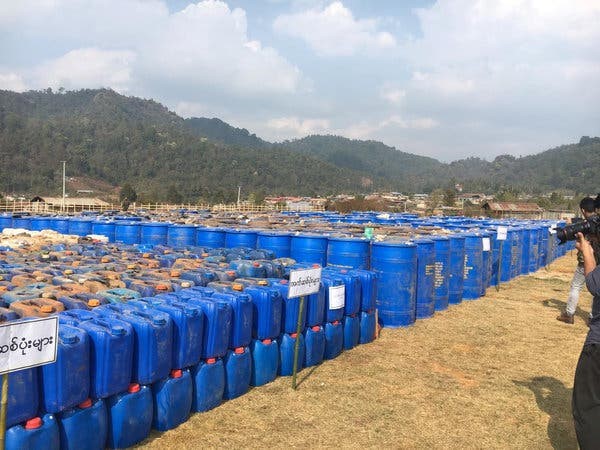
The TOC actors operating in Myanmar and the surrounding region work in concert with PCSC criminal groups based in Asia to coordinate cross-border smuggling of multi-ton quantities of precursor chemicals required for the production of methamphetamine and heroin. Myanmar’s primary narcotics threat is directly linked to the explosive importation of illicit precursor chemicals required for methamphetamine production. Rigaku supported the interdiction training strategy to target and degrade PCSC networks operating in Myanmar’s eastern Shan State.
Rigaku initiated the technical counterdrug interdiction training program in line with the U.S government’s strategy to combat significant TOC groups operating in countries that have been identified as the epicenter of transnational organized crime, terrorism, and drug production. A critical element in Rigaku’s law enforcement training assistance strategy was to assist organizations like U.S. federal agencies, and foreign law enforcement agencies with the implementation of a technical enforcement training program to degrade narcotic trafficking activity. Rigaku’s training assistance was developed to directly target Myanmar’s criminal PCSC networks. Additionally, Rigaku supported the acquisition and training initiative with the Rigaku CQL 1064 nm Raman spectrometer to identify mislabeled and clandestine shipments of precursor chemicals being smuggled into Myanmar.
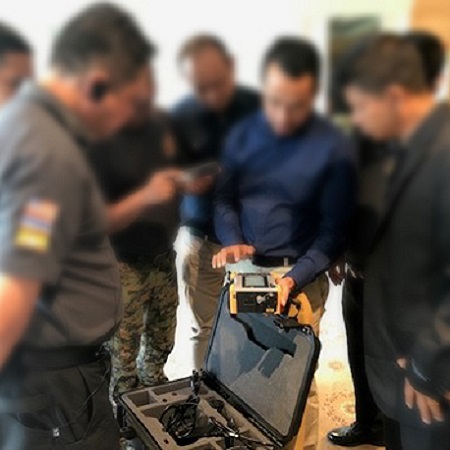
Center of Gravity: Producers of Illicit Narcotics
Rigaku is committed to supporting law enforcement agencies in their long-term counter-narcotic strategy to identify and degrade the critical capabilities of TOC actors to successfully operate PCSC and narcotics transportation networks. TOC actors depend on both maritime and land-based drug transportation networks to coordinate the global shipment of multi-ton quantities of precursor chemicals and narcotics. Identifying essential precursor chemicals used in the illicit production of drugs is the first step in degrading the PCSC networks operating in many countries where drugs are produced.
Operation Description
Rigaku’s support for the Myanmar counter-narcotics training program commenced during October FY2018 and played a critical role in assisting them with developing a counterdrug interdiction strategy. Rigaku developed the training strategy to enhance these agencies’ ability to use advanced counterdrug detection equipment to identify precursor chemicals, narcotics, and explosives.
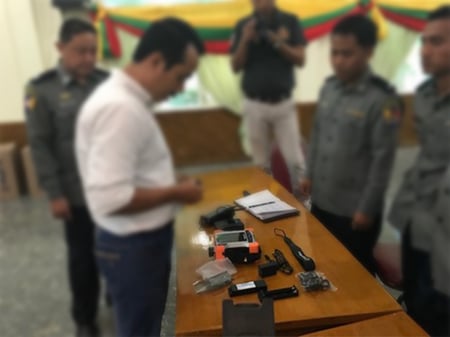
Project Components to the Program
Rigaku Analytical Devices partnered with U.S. federal law enforcement in Myanmar to develop an interdiction training program using the Rigaku CQL 1064 nm Raman spectrometer. The partnership included:- the purchase of three CQL 1064 nm Raman drug analyzers
- one week drug identification class hosted by Florida International University’s National Forensic Science Technology Center
- two day Rigaku Raman instructional course in Myanmar that included practical exercises
The Rigaku CQL 1064 nm analyzer has a computer memory with approximately 13,000 different drugs, precursor chemicals, and explosive identifiers. The CQL 1064 nm was a force multiplier which provided Myanmar counter-drug units the enhanced ability to quickly search numerous vehicles used to transport precursor chemicals and mislabeled containerized chemical consignments resulting in a significant number of illicit chemicals used in the production of narcotics.
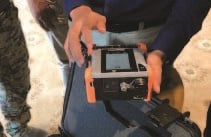
Operation Conclusion
Myanmar’s counter-drug agency successfully integrated the use of the CQL 1064 nm Raman analyzer into their regional narcotics and precursor chemical interdiction operation, resulting in several significant precursor chemical and methamphetamine seizures. Because of the success of this pilot program, Rigaku is planning to continue its support for law enforcement agencies in Asia to target TOC actors, their proxies, and the PCSC networks.Rigaku CQL Identifications during Operation
(partial list)
Pre-Precursor Chemicals
- Acetic Anydride
- Ammonium Nitrate
- 1-Phenyl-2-Propanone
- Methylamine
- Mixture of Methylamine Sulfuric Chloride
Primary Precursor Chemicals
- Caffeine
- Hydrochloric Acid
- Sulphuric Acid
- Acetone
- Sodium Cyanide
- Tartaric Acid
- Acetic Acid
- Sodium Ethoxide
- Benzyl Cyanide
- Ethyl Benzoate
Finished Product
- Heroin
- Ketamine
- Ice
- Yaba Tablets
- Ecstasy
- Cannabis
Recommended Products
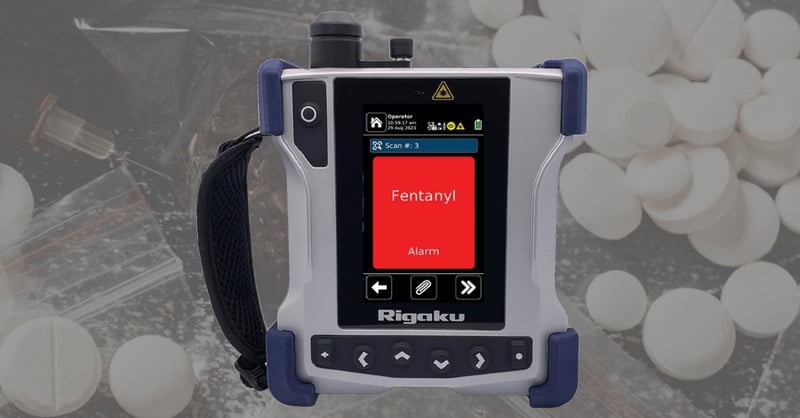
CQL Narc-ID
Presumptive identification of narcotics, precursor chemicals, and cutting agents.
Is the CQL Narc-ID Right for Me? >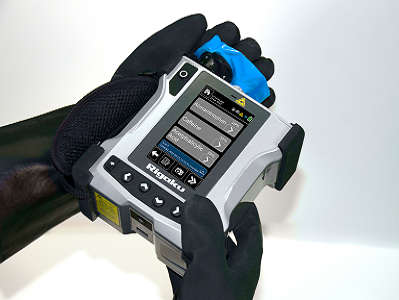
CQL Gen-ID
Expands chemical threat analysis with a library that also includes more general threats, including explosives and general chemicals.
Is the CQL Gen-ID right for me? >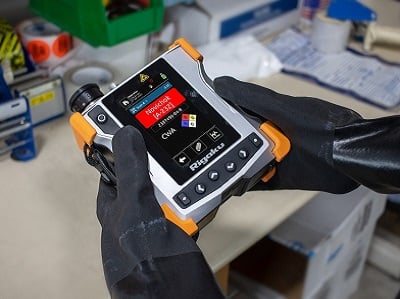
CQL Max-ID
Maximizes chemical threat analysis, with the largest on-board library to identify over 13,000 items including narcotics, explosives, toxic chemical industrial chemicals, chemical warfare agents (CWAs), and more.
Is the CQL Max-ID right for me? >
Contact Us
Whether you're interested in getting a quote, want a demo, need technical support, or simply have a question, we're here to help.
